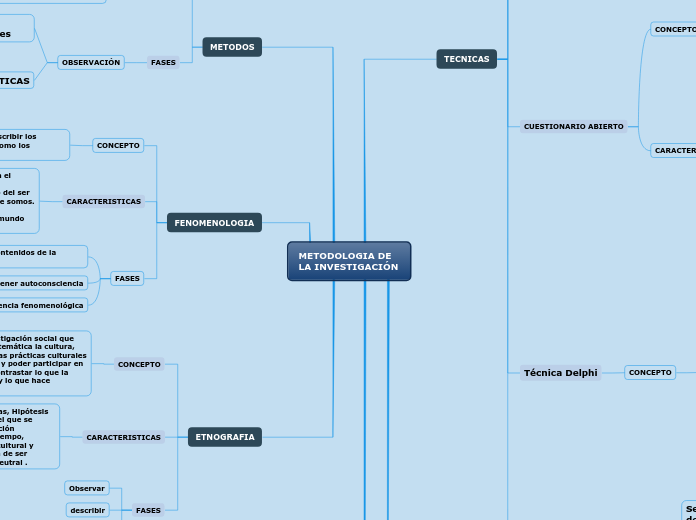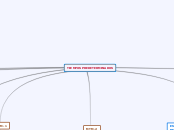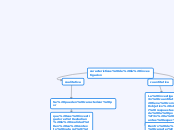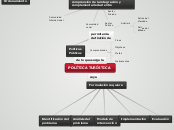METODOLOGIA DE LA INVESTIGACIÓN
Marine life, sea life or ocean life, is represented by the plants, animals and other organisms that live in the saltwater of the sea or ocean, or the brackish water of coastal estuaries.
At a fundamental level, marine life affects the nature of the planet. Marine organisms produce oxygen and sequester carbon.
ETNOGRAFIA
Fish are limbless cold-blooded vertebrate animal with gills and fins living wholly in water.
Enumerate at least 10 of the most popular fish.
analizar
describir
Observar
Rays are the largest group of cartilaginous fishes, with well over 600 species in 26 families.
Rays look like bats in the water, and this is probably why they are called batoids. Rays use their pectoral fins to 'fly' through the water. Though a bony fish takes in water with its mouth, rays do not because they live at the bottom of the ocean.
Name a few of the most known species.
Observaciones contextualizadas, Hipótesis originadas en el momento en el que se desarrolla el estudio, Observación prolongada y reiterada en el tiempo, Explicación del conocimiento cultural y social de los participantes, Ha de ser transcultural y comparativa, neutral .
Species in the shark subclass have skeletons made from cartilage, not bone, and have five to seven gill slits on each side of their heads (most other fish have only one gill slit on each side), which they use to filter oxygen from the water.
Enumerate a few of the most known species of sharks:
Es un método de investigación social que estudia de manera sistemática la cultura, consiste en observar las prácticas culturales de los grupos sociales y poder participar en ellos para así poder contrastar lo que la gente dice (discurso) y lo que hace (prácticas culturales).
FENOMENOLOGIA
Marine plants consist of two major types, the seagrasses, and the algae and seaweeds.
Seagrasses represent members of some of the more complex plants, while algae and seaweeds display simple forms and are often microscopic.
Gather information about marine plants:
- What do marine plants need to survive?
- What is the importance of marine algae?
- How long do aquatic plants live?
-uspender la conciencia fenomenológica
-Tener autoconsciencia
- Examinar todos los contenidos de la consciencia
se enfoca en las vivencias y destaca el sentido que
envuelve lo cotidiano, el significado del ser humano, es decir, la experiencia que somos. La fenomenología es sensible a la problemática desatada en torno al mundo de la vida
se pretende investigar y describir los fenómenos u objetos tal y como los experimentan las personas
METODOS
A coral reef is an underwater ecosystem characterized by reef-building corals. Reefs are formed of colonies of coral polyps held together by calcium carbonate. Most coral reefs are built from stony corals, whose polyps cluster in groups.
The 3 main types of reef are: atoll, barrier reefs, fringing reefs.
Write down their characteristics as well as the importance of the reefs
- What is a barrier reef?
- How is it formed?
- Where are barrier reefs located?
Factico, empírico, objetivo, riguroso y de orden lógico, experimentación sistemática, razonamiento deductivo, análisis y sintesis
preguntas, hipótesis, experimentación, conclusiones
Subtopic
- How does an atoll form?
- Where are atolls found?
- Can people live on an atoll?
conjunto de estrategias y herramientas que se utilizan para llegar a un objetivo preciso,
ESTUDIO DE CASO
Marine mammals are aquatic mammals that rely on the ocean and other marine ecosystems for their existence.
They include animals such as seals, whales, manatees, sea otters, and polar bears. They are an informal group, unified only by their reliance on marine environments for feeding.
FASES
- How big are dolphins?
- What do dolphins eat?
- How are dolphins different from fish?
- Where do dolphins live?
fase postactiva
fase interactiva
fase preactiva
CLASIFICACIÓN
- Why are they called sea cows?
- Where do they live?
- How long can they stay underwater?
- Can manatees live on land?
- Do manatees sleep underwater?
Estudio de casos multiples: Inducción analitica modificada, comparación constante
Estudio de caso unico: Historigo-organizativo, observacional, biografia, comunitario, situacional, microetnografia
- How are seals and sea lions alike?
- Are seals or sea lions aggressive?
- Why are sea lions called sea lions?
- What is a group of seals called?
Es particularista, descrptivo, heuristico, inductivo, descrpcion contextualizada, holisticos, pecualridad y particularidad, se centra en las interacciones y las relaciones, fenomenos contemporaneos, multiples fuentes de datos, es inductivo.
- How big are whales?
- What do whales eat?
- How are whales different from fish?
- Where do whales live in the world?
- What are whales known for?
Medio de investigación de unidades sociales complejas que consta de multiples variables importantes para comprender el fenomeno
INSTRUMENTOS
Seabirds are birds that are adapted to life within the marine environment. While seabirds vary greatly in lifestyle, behavior, and physiology, they often exhibit striking convergent evolution, as the same environmental problems and feeding niches have resulted in similar adaptations.
Name a few of bird species who live at sea or at the seaside:
OBSERVACIÓN
Guia de observación, registro anecdotico, diaro de trabajo
recursos estructurados diseñados para fines especificos.
ANALISIS
Portafolio, rubrica, lista de cotejo.
DESEMPEÑO
organizadores graficos.
INTERROGATORIO
Debato, ensayo, pruebas escritas
TECNICAS
Currently, of the approximately 12,000 extant reptile species and subspecies, only about 100 are classed as marine reptiles: extant marine reptiles include marine iguanas, sea snakes, sea turtles and saltwater crocodiles.
GRUPO FOCAL
Características
- Propiciar descripciones densas, en las cuales refleje el contexto social.
- Aludir a temas importantes significativos para los participantes
Conocer el mundo de vida de los entrevistadores
Se entiende como un encuentro de un grupo con un contexto compartido o un espacio para la opinión que les permite expresar su sentir, pensar y vivir a través de explicaciones o experiencias.
Técnica Delphi
Pretende extraer y minimizar las ventajas que presentan los métodos basados en grupos de expertos y minimizar sus inconvenientes.
VENTAJAS
- Permite valorar alternativas de desicion
- Evita el pensamiento global
Se obtiene información de cada participante
- Respuesta estadística del grupo
- Heterogeneidad
- Retroalimentación
- Anonimato
Proceso iterativo
CUESTIONARIO ABIERTO
- Cada pregunta se debe limitar a un sólo tema
- Las preguntas no deben tener una formulación negativa
- Las preguntas deben adecuarse al nivel educativo y cultural del encuestado
- Se debe utilizar un lenguaje sencillo
Puede ser útil a la investigación cualitativa
CONCEPTO
Es aquel que solicita una respuesta libre y provoca respuestas de mayor profundidad sin delimitar las alternativas respuestas del propio sujeto.
ENFOQUES DE ENTREVISTA
Crocodilians may be found swimming out at sea, but they can't live out there in the way that a marine turtle can.
Research, then write down what you know about them. For e.g, their lifespan, their weight, where you can spot them. etc
CLASIFICACIÓN DE ENTREVISTA
The marine iguana, also known as the sea iguana is a species of iguana found only on the Galápagos Islands that has the ability, unique among modern lizards, to forage in the sea, making it a marine reptile.
Add important facts about marine iguanas. For e.g. how long can a marine iguana stay underwater or how long do they live, etc.
- Entrevista de preguntas cerradas
- Entrevista de preguntas abiertas
- Entrevista Centrada
- Entrevista Profunda
Entrevista clínica
- Entrevista estandarizada
- Entrevista General
Entrevista Informal
Entrevista Profunda
Sea snakes, or coral reef snakes, are a subfamily of venomous elapid snakes, that inhabit marine environments for most or all of their lives. Most are extensively adapted to a fully aquatic life and are unable to move on land.
Research, then write down facts about sea snakes, for e.g. how fast they swim, what do they eat or how long they live, etc.
-Las respuestas pueden ser grabadas
-Se explora uno o dos temas a detalle
-El entrevistador debe estar debidamente capacitado
-El entrevistador no evalúa las respuestas
- Pretende comprender mas que explicar
Ser abierta
Es una técnica de investigación cualitativa, en la que el entrevistador guía la conversación pero concede espacio al entrevistado para que exprese sus puntos de vista.
OBSERVACIÓN PARTICIPANTE
Write down some interesting facts about sea turtles, like how long they live or how long can they dive, etc.
CARACTERISTICAS
Proceso abierto y flexible, Realidad social y cultural, Estudio en profundidad, Rol participante del observador, Perspectiva de las personas implicadas, Lógica del descubrimiento.
Se caracteriza por ser cientifica, etnografica, permite obtener información más profunda, es compleja y diversa, del escenario natural donde se produce.









